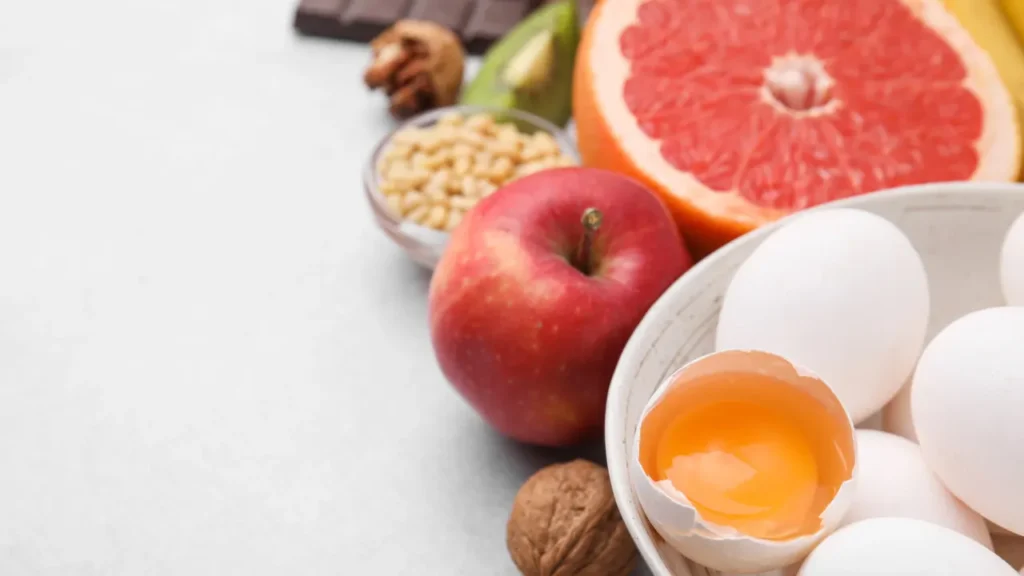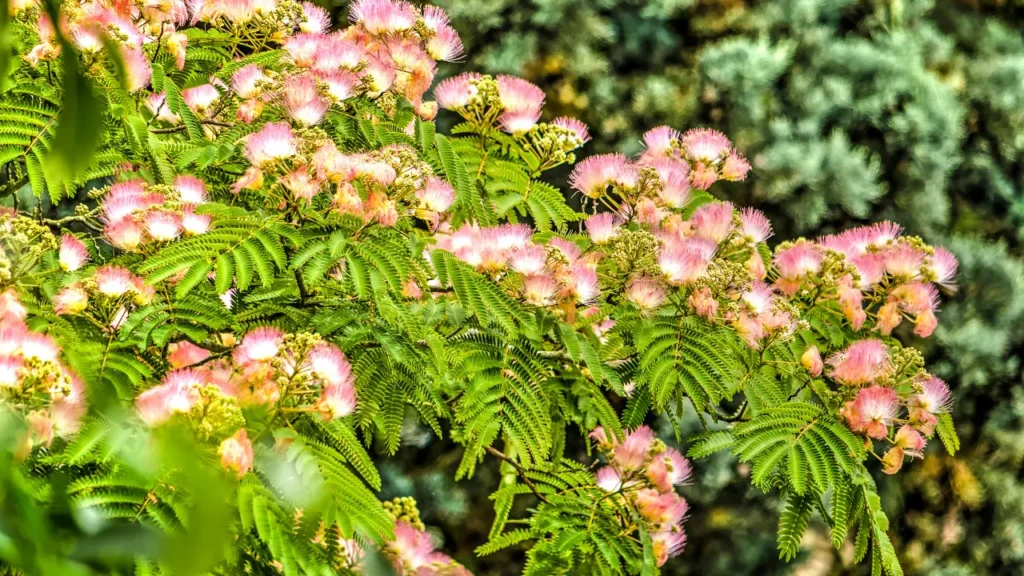Albizia, also called Albizia julibrissin, is a plant with a long history of usage in traditional medicine due to its beneficial effects. Although it originated in China, Korea, and Iran, it has since spread to other countries, including the US, where it is now planted as an ornamental plant. The plant’s flowers, leaves, and bark are all utilized to manufacture medication. Albizia is a well-liked vitamin for reducing stress and anxiety because of its well-known calming and soothing qualities. This article will cover the characteristics of albizia, its health advantages, the ideal dosage, its adverse effects, possible drug interactions, and other pertinent details on the most ethical ways to take this dietary supplement.
You May Also Like:
ONNIT Supplements Antarctic Krill Oil Reviewed: A Leading Memory Support Supplement
Tiratricol: Benefits, Dosage, Side Effects, Drug Interactions, and Other Important Information
Albizia: Benefits, Dosage, Side Effects, Drug Interactions, And Other Important Information is an original (NootropicsPlanet) article.
Nature of Albizia
Numerous active substances, such as saponins, flavonoids, and alkaloids, are present in albizia. Saponins, recognized for their anti-inflammatory and antioxidant qualities, are highly concentrated in the plant’s bark. Flavonoids are strong antioxidants that support the body’s defenses against oxidative stress. Alkaloids, which have been demonstrated to have sedative and anxiolytic properties, are also present in albizia.
Health Benefits of Albizia
Albizia is a well-liked vitamin for reducing stress and anxiety because of its many health advantages. The calming and soothing properties of albizia are among its main advantages. It has been shown to lessen anxiety, encourage relaxation, and enhance sleep quality. Albizia may be used to treat depression because research has indicated that it contains antidepressant properties.
Albizia has been demonstrated to be beneficial for the immune system and mental wellness. Its substances stimulate the production of white blood cells, which are crucial for warding off infections and illnesses. Albizia has also been shown to have anti-inflammatory properties, which may lessen pain and inflammation.

Chemistry of Albizia
Numerous active chemicals make up albizia’s intricate chemistry. Triterpenoid saponins, recognized for their anti-inflammatory and antioxidant activities, are present in the plant’s bark. Flavonoids in the plant contribute to albizia’s powerful antioxidant properties, which aid in defending the body against oxidative stress. Among the alkaloids found in albizia is juliprosopine, which has been demonstrated to have sedative and anxiolytic properties.
Physiological Mechanism of Action
It is yet unclear how albizia affects the body and brain physiologically. Albizia, however, may function through modifying the activity of specific neurotransmitters, such as serotonin and gamma-aminobutyric acid (GABA), according to studies. These neurotransmitters are essential for controlling anxiety, mood, and sleep.
It has been proven that albizia increases serotonin levels in the brain, which can elevate mood and lessen anxiety. Additionally, it has been demonstrated to increase the action of GABA, a neurotransmitter that calms the brain and aids in promoting relaxation and lowering stress.
Additionally, albizia has anti-inflammatory properties, which may lessen inflammation in the body and brain. Numerous mental health issues have been related to chronic inflammation.

Optimal Dosage of Albizia
Several variables influence the ideal albizia dosage, including age, weight, and general health. Albizia is not subject to FDA regulation; hence, there is no set dosage that is advised. Most specialists recommend starting with a modest dose and gradually increasing it over time to get the intended impact.
A usual Albizia dosage for anxiety and stress is 200–400 mg per day. A more significant dose, up to 800 mg per day, may be necessary for depression. Before beginning a new supplement regimen, consult a healthcare practitioner to establish the ideal dosage for your particular needs.
Side Effects of Albizia
When used as directed, albizia is generally regarded as safe. However, adverse effects are possible for certain people, particularly when taking excessive amounts. Albizia’s most typical adverse effects include:
- Nausea
- Headaches
- Dizziness
- Drowsiness
Albizia can occasionally result in an allergic response. Seek emergency medical attention if you suffer any adverse reaction symptoms, including wheezing, hives, or swelling.

Potential Substance Interactions with Albizia
Certain prescription drugs and dietary supplements, such as:
- Tranquilizers and sedatives: Albizia may intensify the effects of tranquilizers and sedatives, resulting in severe sedation and sleepiness.
- Antidepressants: Albizia and some antidepressants may interact, resulting in serotonin syndrome, a disease that may be fatal.
- Immunosuppressants: Albizia may interfere with or lessen the effects of several immunosuppressant drugs.
If you are presently taking any drugs or dietary supplements, you should see a healthcare provider before taking albizia to prevent any interactions.
Best Responsible Uses of Albizia
It’s important to utilize albizia responsibly as a dietary supplement. Although it is typically considered safe when taken at the suggested dosage, it is crucial to consult a healthcare provider before beginning any new supplement program. Albizia should not be used in place of standard medical care for any medical problem.
Starting with a modest dose of albizia and progressively increasing it over time can help you achieve the desired result. Additionally, it’s critical to monitor for any side effects and stop using the medication if they manifest.
Albizia should be kept out of direct sunlight in a cool, dry location. It’s crucial to follow the manufacturer’s recommendations for usage and storage.
Albizia:
Conclusion
Albizia shows promise as a medicinal plant with potential health benefits, particularly in the areas of mood enhancement, antioxidant activity, and anti-inflammatory effects. In traditional Chinese medicine, albizia has been used to calm the mind, soothe the spirit, and promote emotional well-being. It is often used in herbal formulations to address conditions such as insomnia, irritability, and emotional imbalances.
While some evidence from animal and cell culture studies supports the health benefits of albizia, clinical studies in humans are limited. More research is warranted to validate its traditional uses, particularly well-designed clinical trials, is needed to elucidate its efficacy, safety, and optimal dosage for various health conditions. Individuals interested in using albizia for medicinal purposes should consult with a healthcare professional for personalized advice and recommendations.

References:
- Antidepressant-like effects of water extract of Albizia julibrissin bark in rats. Link: https://www.hindawi.com/journals/ecam/2013/721632/
- Albizia: A review on ethnobotanical uses, phytochemistry and pharmacological activities. . Link: https://www.sciencedirect.com/science/article/pii/S0378874114007073
- The neuroprotective effects of Albizia julibrissin on stroke recovery in rats. Link: https://www.sciencedirect.com/science/article/pii/S1052305717303788
Important Note: The information contained in this article is for general informational purposes only, and should not be construed as health or medical advice, nor is it intended to diagnose, prevent, treat, or cure any disease or health condition. Before embarking on any diet, fitness regimen, or program of nutritional supplementation, it is advisable to consult your healthcare professional in order to determine its safety and probable efficacy in terms of your individual state of health.
Regarding Nutritional Supplements Or Other Non-Prescription Health Products: If any nutritional supplements or other non-prescription health products are mentioned in the foregoing article, any claims or statements made about them have not been evaluated by the U.S. Food and Drug Administration, and such nutritional supplements or other health products are not intended to diagnose, treat, cure, or prevent any disease.


